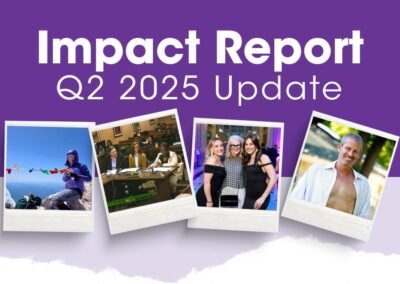CONTACT:
Erika Wilhelm, Breast Cancer Prevention Partners, 415-321-2920
April 26, 2024
Washington, D.C. – Today the U.S. Food and Drug Administration (FDA) announced the filing of a food additive petition that asks FDA to remove its approval of the use of fluorinated polyethylene as an indirect food additive. The petition was submitted by Environmental Defense Fund, Breast Cancer Prevention Partners, Center for Food Safety, Environmental Working Group and Tom Neltner on January 22, 2024.
“It is long past due for FDA to act on our exposure to PFAS from fluorinated polyethylene. The science on the harms associated with exposure to PFAS is well-established,” said Maria Doa, Senior Director for Chemical Policy at the Environmental Defense Fund.
The fluorination process creates PFAS which can easily leach into the container’s contents, including food. FDA approved the fluorination of polyethylene plastic in 1983. Fluorination of plastic is widely used to treat hundreds of millions of polyethylene containers annually used in various industries including the food industry and its suppliers.
PFAS poses a risk to human health—even at very low levels of exposure and for some like PFOA no safe amount has been identified. PFAS has been associated with toxicity to the immune system, to development, the thyroid system, the reproductive system and increase the risk of certain cancers, including breast cancer. People are often exposed to multiple PFAS, and these chemical exposures can exert harmful cumulative effects on human health.
Our petition to FDA noted that aside from the risks to consumers exposed to PFAS that can contaminate food and food additives, fluorinated polyethylene presents potentially significant risk to workers and the communities around the facilities that either produce the materials or incinerate, landfill, or recycle them. In addition, these fenceline communities, who are often communities of color and low-income communities are more likely to be disproportionately exposed to PFAS from multiple sources.
The use of fluorinated polyethylene by the food industry and their suppliers is neither necessary nor safe. Given the science generated over the last forty years, exposure to PFAS should be prevented. The petitioning organizations expect that FDA will take action on the petition within the statutory 180 days.
Quotes from petitioners:
“Over 313,000 people are newly diagnosed with breast cancer each year. Given the strong scientific evidence linking PFAS exposure to an increased risk of breast cancer, the FDA should stop the use of fluorinated plastics in food packaging and production materials immediately,” said Lisette van Vliet, Senior Policy Manager, Breast Cancer Prevention Partners.
“In a better late than never move, the FDA has finally begun the process of considering banning PFAS from our food. We are faced with a rising epidemic of cancer in the U.S. that research shows may be related to endocrine disruption by PFAS and related chemicals. It’s high time FDA took action to protect us from these forever chemicals.” said Jaydee Hanson, Policy Director, Center for Food Safety
“Reducing and eliminating PFAS exposure is an urgent public health need due the incredible toxicity of these chemicals. The FDA must act to safeguard our food supply and eliminate any potential source of PFAS from food packaging or food contact materials that may be contributing to our overall exposure.” said David Andrews, Deputy Director, Investigations and Senior Scientist, Environmental Working Group.
###
Breast Cancer Prevention Partners (bcpp.org) is the leading national science-based, policy and advocacy organization focused on preventing breast cancer by eliminating our exposure to toxic chemicals and radiation. Learn more at bcpp.org
Environmental Defense Fund (edf.org) creates transformational solutions to the most serious environmental problems. To do so, EDF links science, economics, law, and innovative private-sector partnerships. With more than 3 million members and offices in the United States, China, Mexico, Indonesia and the European Union, EDF’s scientists, economists, attorneys and policy experts are working in 28 countries to turn our solutions into action. Connect with us on Twitter @EnvDefenseFund



